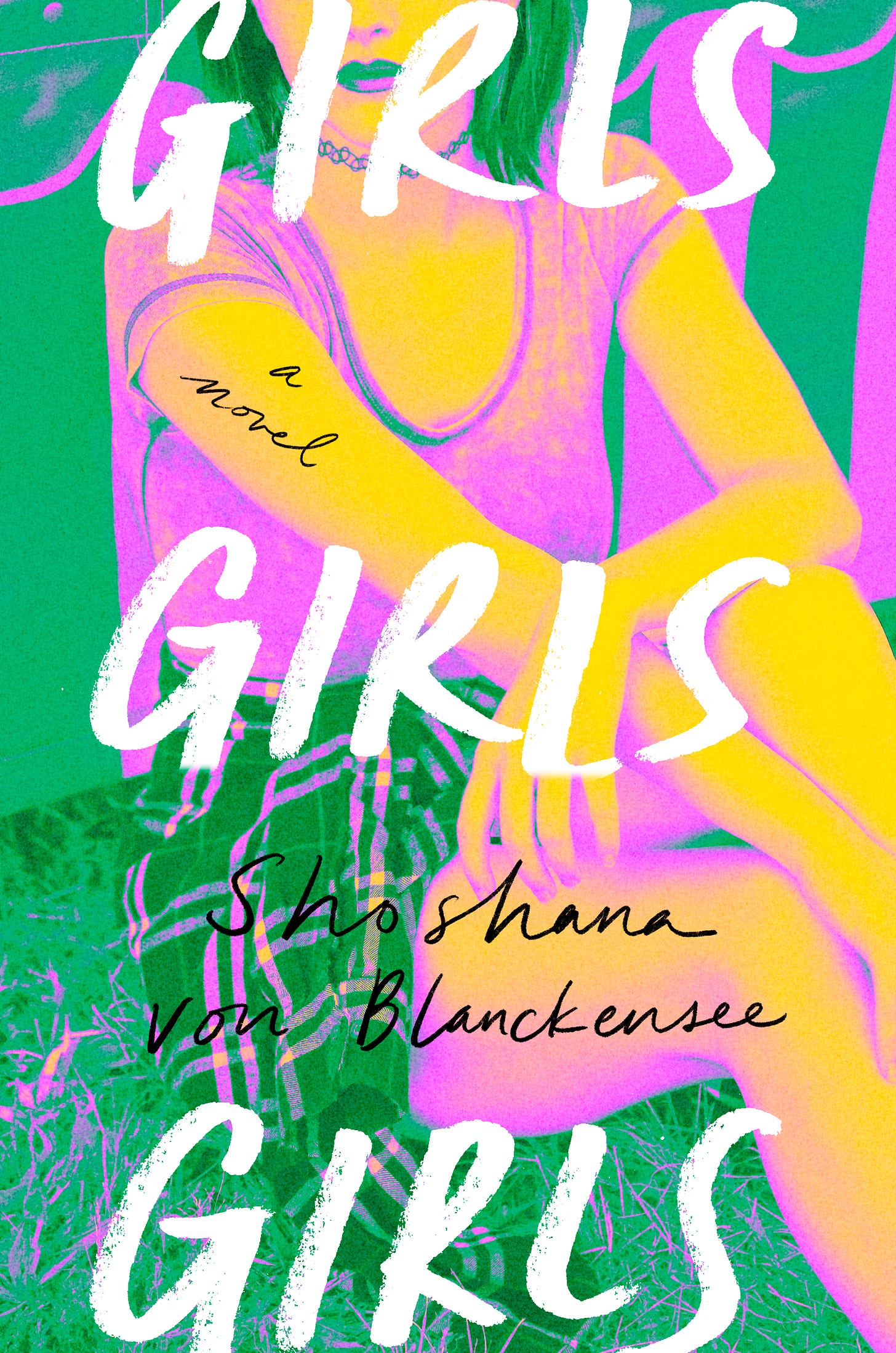ARC Review: Girls Girls Girls by Shoshana von Blanckensee
It’s the summer of ’96 and best friends (and secret girlfriends) Hannah and Sam are ready to find their future in San Francisco.
I recently had the pleasure of receiving an ARC of Girls, Girls, Girls by Shoshana von Blanckensee from the publisher in exchange for an honest review.
This book in three words: hopeful, winding, raw.
Summary: It’s the summer of ’96 and best friends (and secret girlfriends) Hannah and Sam are driving across the country from Long Beach, New York, to the fabled queer paradise of San Francisco, free from the harsh gazes of their neighbors and the stifling demands of Hannah’s devout Orthodox Jewish mother . . . even if the move means leaving behind Hannah’s beloved Bubbe. The financial strains of West Coast living push the girls to start stripping at The Chez Paree, and Hannah eventually accepts an escort arrangement with an older butch lesbian. But as Hannah and Sam grow apart, Hannah is forced to ask what does San Francisco mean to her alone—a space rich with queer possibility or an intimidating, unfamiliar place just as lonely as the one she’d left behind?
⭐⭐⭐⭐
Shelved as literary fiction, but more accurately squished between coming-of-age YA and slice-of-life fiction, Girls Girls Girls is a beautifully confused novel. It reads casually, yet tackles some serious topics—from queer identity in the nineties to the ethics of sex work. Hannah’s life alternates from the bubbly joy of a new teenage crush to the crushing grief of losing a family member.
The only constant, ironically, isn’t Sam, the girl Hannah has traveled across the country with—she’s off having her own quarter-life crisis for most of the novel—but the tough-love setting of San Francisco. The city throws challenges Hannah’s way day after day, but also offers her a lifeline time after time, never truly letting her drown.
And in that eternal will-she-survive-or-won’t-she tension, Shoshana von Blanckensee draws the plot of the novel. That’s why why I categorized Girls Girls Girls as a hybrid slice-of-life story: there’s no overarching conflict, no antagonist to face. All Hannah wants to do is pay her rent and be happy. It’s not the highest-stakes novel I’ve read this year, but it’s one of the most real. As someone who made the opposite migration (SF to NYC) as a young woman, I empathize with the determination to succeed at all costs, and the identity shifts that happen, whether you intend to change or not.
For me, the most compelling plot line was the one hardly even mentioned in the book’s description: Hannah’s relationship with her grandmother, Bubbe. She’s the ultimate hype woman enveloped in a feeble body bursting with wrinkles and love. She’s always there to offer just the right semi-vague advice—nudging Hannah to arrive at her own conclusions when she’s at a crossroads. Maybe I loved her so much because she reminded me of my own grandmother—but isn’t that a sign of great literature? Fiction so persuasive that it’s reminiscent of truth? It doesn’t really matter. Bubbe’s the best and that’s that.
But I would be out of my mind not to mention the incredible depiction of the SF queer scene in the 90s. In the prologue, Shoshana makes note of using outdated language with fondness (the 90s understanding of gender and sexuality is much more limited than our understanding today), and you can feel that fondness bleeding through the pages. The lesbian bar! The all-female painting crew! The conspiratorial kindness of a neighborhood barista! The joy of finding language to describe your experience! The awe of joining a community of of people like you! This book was a window into a world I just barely wasn’t old enough to witness myself.
Girls Girls Girls was hope, and honesty, and fear all wrapped into one beautifully-covered package. It’s not a hang-on-for-your-life adventure, or even a head-over-heels romance, but it doesn’t need to be. It’s just one eighteen-year-old finding her way.





